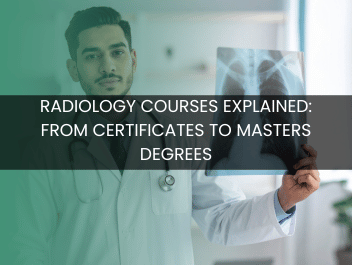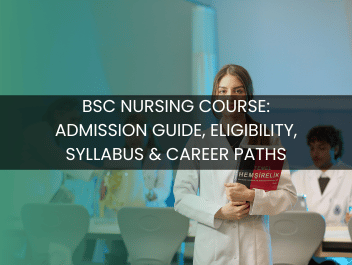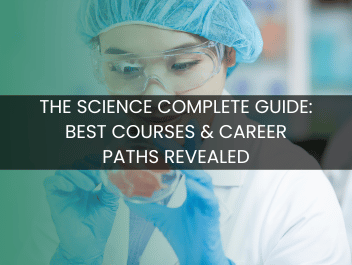
The Ultimate Guide to Career Options Post-High School Graduation
Choosing the right career post-high school can be a daunting task for many students. With a myriad of career options for students available in today’s rapidly changing job market, making informed career choices is more crucial than ever. Understanding the importance of aligning one's interests with future employment opportunities is key to maximizing job satisfaction and success.
The paths are numerous, whether you're inclined towards science streams like PCM and PCB, motivated by opportunities in commerce fields, or passionate about exploring arts and humanities. Each of these sectors presents unique high-salary courses and career pathways that can significantly impact students' futures. Additionally, the rise of non-traditional careers, such as those in AI, digital marketing, and sustainable practices, highlights the importance of staying informed about emerging trends.
This comprehensive guide will navigate you through various career options post-high school, offering insights into both traditional and cutting-edge career paths. It delves into the significance of internships, the benefits of vocational training, and the rising start-up culture, ultimately helping students make educated decisions about their future career choices.
Table of Content
- 1. High-Salary Courses and Their Requirements
- 2. Science Streams: PCM and PCB Explained
- 3. Opportunities in Commerce Fields
- 4. Exploring Arts and Humanities
- 5. Key Sectors for Future Employment
- 6. Upskilling: Online Courses and Certifications
- 7. Further Education vs. Vocational Training
- 8. Career Guidance and Counseling Resources
- 9. Conclusion: Making Informed Decisions About Your Future Career Choices
Understanding Career Pathways
Selecting the right career path is vital for students as it sets the foundation for their future. Career options for students are vast and diverse, catering to various interests and strengths. Choosing a career can be daunting, but understanding different career pathways allows students to make informed career choices. Making suitable career choices requires considering one's passion, skills, and job satisfaction potential. With the right career choices, students can align their objectives with a sustainable development approach, paving the way for a successful and fulfilling career.
High-Salary Courses and Their Requirements
High-salary courses often attract students for their lucrative career prospects. These courses require dedication and specific skills, but the payoff can be significant. Fields such as software development, graphic design, and engineering offer high salaries. Skilled professionals in these areas are in demand. To enroll in these courses, students typically need science or commerce backgrounds. Diploma courses also play a crucial role, providing hands-on experiences and essential skills relevant to potential career options. High-salary jobs are not just about income but also fulfilling one's career goals and objectives.
Science Streams: PCM and PCB Explained
Science streams offer diverse career opportunities for students. In India, students often choose between PCM (Physics, Chemistry, Mathematics) and PCB (Physics, Chemistry, Biology) streams after 10th grade. PCM students can pursue careers in engineering, technology, and software development. PCB students might explore medicine, biotechnology, and environmental science. Both streams provide a wide range of career options for students, each with its unique pathways and potential for success. Average students can excel in these fields by focusing on their strengths and interests.
Opportunities in Commerce Fields
Commerce fields present vast career options for students interested in business and finance. Students after 12th commerce can pursue careers in accounting, banking, and management. These career paths offer job satisfaction and a wide range of job roles in corporate sectors. Commerce students can also explore creative fields such as marketing and content creation. Diploma courses in commerce provide practical knowledge, preparing students for the workforce. Commerce fields are dynamic, offering students diverse career options and the chance to reach their career objectives.
Exploring Arts and Humanities
Arts and Humanities offer potential career options for students passionate about culture, history, and society. Fields such as social science, literature, and graphic design provide creative and rewarding career paths. Students in this stream can pursue careers in teaching, writing, and media. The arts and humanities play a crucial role in fostering creativity and critical thinking. This field brings unique opportunities for personal growth and career development. Exploring these career choices can lead to a fulfilling and balanced career, merging passion with professional aspirations.
Key Sectors for Future Employment
In today's rapidly evolving world, choosing the right career is crucial for students aiming for a successful future. There are a wide range of career options for students that promise growth and job satisfaction. As technology advances and societal needs shift, certain sectors are set to dominate the employment landscape. Understanding these key sectors will help students make informed career choices. Mindgroom.in suggests focusing on emerging fields to secure a lucrative career that aligns with one's career goals and objectives. Below, we explore some of the most promising sectors for future employment.
Information Technology and its Growing Demand
The Information Technology (IT) sector is witnessing unprecedented growth. As technology integrates into every aspect of our lives, skilled professionals in software development, cybersecurity, and data analysis are in high demand. Students have numerous potential career options within this field, from developing cutting-edge applications to maintaining complex IT infrastructures. Pursuing a career in IT offers dynamic job roles and the opportunity for hands-on experiences. With a range of career choices available, IT professionals can carve out a sustainable development path that aligns with their personal interests and career objectives.
Careers in Healthcare and Medicine
Healthcare and medicine continue to be crucial sectors for employment, driven by aging populations and medical advancements. This field offers a range of career options for students. From becoming doctors and nurses to working in medical technology and pharmaceuticals, the options for students are vast. The healthcare industry also offers career paths in public health and administration, providing students with diverse ways to impact patients' lives positively. Pursuing a career in healthcare promises job security and the rewarding opportunity to contribute to societal well-being.
The Importance of Renewable Energy Jobs
As the world moves toward sustainable development, the renewable energy sector is becoming increasingly important. Careers in this field are crucial for combating climate change and promoting environmental sustainability. Opportunities range from jobs in solar and wind energy to roles in energy storage and efficiency. Students interested in science and technology can explore these emerging career fields. The push for cleaner energy sources ensures a continuous demand for skilled professionals committed to making a difference. Careers in renewable energy not only promise a stable future but also allow students to play a pivotal role in environmental conservation.
Exploring Opportunities in FinTech
FinTech, or financial technology, is revolutionizing the way we manage money. This sector merges finance and technology, creating innovative solutions for banking, investment, and money management. Students interested in finance, technology, or entrepreneurship can find a plethora of career options in this booming field. From blockchain development to mobile payment innovations, FinTech offers dynamic career paths. With its rapid evolution, FinTech provides opportunities for students to engage in creative fields, ensuring a forward-thinking and successful career. The demand for skilled professionals in FinTech underscores its importance in today's digital-driven economy.
Non-Traditional and Emerging Career Paths
In today's ever-evolving job market, students have an exciting range of career options available. Gone are the days when traditional careers were the only choice. Now, non-traditional and emerging career paths offer fresh opportunities for growth and innovation. These paths not only cater to a wide range of interests but also promise job satisfaction and a successful career. By exploring different career paths, students can align their career goals with their personal and professional interests. Whether it’s in technology, digital marketing, or environmental fields, there are ample career choices waiting to be explored. Understanding these options can play a crucial role in a student's career objectives.
The Rise of AI and Machine Learning
Artificial Intelligence (AI) and Machine Learning (ML) are redefining the landscape of career choices for students. As technology advances rapidly, the demand for skilled professionals in AI and ML increases. Students with a knack for problem-solving and a passion for technology can find lucrative career opportunities in these fields. AI and ML careers offer hands-on experiences that are both challenging and rewarding. From developing sophisticated algorithms to enhancing software development, these roles are at the forefront of innovation. Diploma courses tailored to AI and ML can equip students with the necessary skills to excel in this burgeoning field.
Exploring Digital Marketing
The digital marketing sector represents a vibrant field for students seeking creative career options. With the internet and social media influencing modern businesses, digital marketing has become a crucial part of any successful career strategy. Students interested in creativity and analytics will find vast career paths in content creation, SEO optimization, and social media management. Digital marketing allows for flexibility and creativity, making it highly appealing for those desiring a dynamic and engaging work environment. Professional courses in digital marketing can help students gain valuable insights and skills, preparing them for diverse job roles and a successful career in the digital world.
Careers Focused on Sustainability
As global awareness of environmental issues grows, so does the demand for careers focused on sustainability. These career fields offer students a chance to contribute to sustainable development and environmental conservation. From environmental science to green technology, the options for students are diverse and impactful. Students driven by the desire to make a difference will find fulfilling careers in these sectors. Roles can range from policy-making to hands-on ecological projects, each promoting a more sustainable future. Students interested in these career paths can explore various diploma courses and professional programs that provide the necessary expertise and practical experience. Sustainable careers promise not only personal satisfaction but also a positive impact on the planet.
Importance of Skill Development and Internships
Choosing the right career options for students is crucial in shaping their future. A successful career often begins with a strong foundation in skill development and internships. These experiences play a vital role in preparing students for diverse career choices in today’s competitive world. Skill development enhances a student’s abilities and increases their employability, while internships provide hands-on experiences in potential career fields. Here's how these elements are instrumental in defining career paths.
Role of Internships in Career Building
Internships are a crucial component in exploring potential career options for students. They offer invaluable insights into a student’s chosen field, providing a taste of what a career in that industry might be like. Through these experiences, students can gain practical knowledge, network with professionals, and enhance their resume. Internships also allow students to explore a wide range of career paths, enabling them to make informed career choices. Not only do internships help clarify career objectives, but they also play a decisive role in career building by offering firsthand experience in various job roles.
Upskilling: Online Courses and Certifications
As the job market evolves, upskilling through online courses and certifications has become essential for students. This approach opens up a wide range of career options by providing specialized knowledge in fields like software development, environmental science, and graphic design. Online courses offer flexibility, allowing students to balance their studies while gaining additional qualifications. These certifications enhance a student's profile, making them more attractive to potential employers. Upskilling also helps students after 12th grade to explore diverse career choices and adjust their career paths based on industry needs. Thus, online courses and certifications are key in preparing students for the demands of different career fields.
How to Conduct a Personal Interest Assessment
Conducting a personal interest assessment is a valuable step for students exploring career options. This process involves reflecting on personal interests, strengths, and career goals to identify suitable career paths. Begin by listing hobbies, subjects of interest, and activities that capture your attention. Next, consider how these interests align with potential career objectives. It's also important to research job roles within those areas to understand the requirements and job satisfaction levels associated with them. Identifying common themes can help students pinpoint career choices that are both fulfilling and aligned with their passions. By conducting a thorough personal interest assessment, students can choose a lucrative career that ensures enduring job satisfaction.
Entrepreneurship and Start-Up Culture
Entrepreneurship and start-up culture have revolutionized the way we view career options for students. In today's dynamic world, students are no longer confined to traditional career choices. Instead, they have a wide range of career options, including exploring innovative ventures. The power of entrepreneurship lies in its ability to transform ideas into successful careers, and this trend is shaping the future of work across the globe. Through hands-on experiences and exposure to start-up culture, students can discover potential career paths that align with their passions and skills.
Building a Start-Up: Steps and Resources
Initiating a start-up requires a clear vision and strategic planning. Aspiring entrepreneurs must first identify a market need or problem they are passionate about solving. This lays the foundation for their venture, guiding all subsequent decisions. Crafting a detailed business plan is the next crucial step, outlining objectives, target demographics, and potential challenges. Students should leverage available resources like mentoring programs, online courses on sustainable development, or workshops on software development, which provide valuable knowledge and guidance.
Networking plays a crucial role in building any start-up. Connecting with experienced entrepreneurs and investors can offer insights and open doors to funding opportunities. Utilizing online platforms and attending industry events can facilitate these connections. Moreover, start-ups can benefit from incubators and accelerators that offer support in exchange for equity, providing mentorship and resources essential for growth.
Understanding the Entrepreneurship Ecosystem
The entrepreneurship ecosystem is nurturing environments that support start-up ventures. It comprises various elements, including educational institutions, financial frameworks, and policy structures that together create a supportive environment for aspiring entrepreneurs. Students should engage with these ecosystems to gain a deeper understanding of the business landscape and to explore a wide range of career options.
Educational institutions play a significant role by offering diploma courses and training programs focused on innovation and entrepreneurship. These programs equip students with essential skills needed to embark on successful careers. A robust financial ecosystem is also pivotal; access to venture capital and angel investors can provide the needed funding for early-stage start-ups, turning innovative ideas into reality.
Government policies and regulations also have a crucial impact on the entrepreneurship ecosystem. Supportive policies, such as tax incentives and simplified compliance processes, can significantly ease the burden on new enterprises. Students interested in entrepreneurship and creative fields should stay informed about changes in these areas to capitalize on opportunities and avoid potential pitfalls. Engaging with this ecosystem can lead to lucrative careers and fulfill career goals through innovative enterprise ventures.
Further Education vs. Vocational Training
Choosing the right path after high school is crucial for students since it largely determines their future career success. Career options for students include further education, like a traditional college degree, and vocational training, which focuses on specific skills. Understanding career choices helps students make informed decisions. Both paths offer a range of career options, but they come with their unique pros and cons.
Deciding Between College and Vocational Schools
Deciding between college and vocational schools can be challenging for students. College typically offers a broad education, fostering critical thinking and providing various career paths. However, it often involves a significant time and financial investment. On the other hand, vocational schools focus on hands-on experiences in specific fields, such as software development or graphic design. This targeted training often leads to a successful career in a shorter time frame.
For those aiming for creative fields or social science careers, college might be the better choice. Meanwhile, students seeking skilled professions can benefit greatly from vocational training. Career options for students can be expanded by carefully examining their interests, career objectives, and the potential ROI of their education path.
Scholarships and Financial Aid Options
The cost of education can greatly influence career choices. Fortunately, there are numerous scholarships and financial aid options available. For college-bound students, scholarships based on academic achievements, sports, or arts are common. Students considering career fields like environmental science can find scholarships geared toward sustainable development studies.
Vocational training programs also offer financial assistance through grants or subsidized loans. This financial support plays a crucial role in ensuring that average students gain access to lucrative careers. Researching available financial resources makes education more accessible and allows for informed career options for students.
Benefits of Vocational Training Programs
Vocational training programs offer significant benefits for students who desire focused career paths. These programs provide practical skills and direct training in specific industries, making graduates job-ready upon completion. Training often takes less time than a college degree but prepares students for skilled professions with high job satisfaction.
The immediate application of learned skills ensures that students have hands-on experiences, which employers highly value. In fields such as 12th commerce or biology, vocational training can enhance employment opportunities by making students competitive candidates. For students focused on career goals with limited time, vocational training opens potential career options that provide quicker entry into the job market.
Career Guidance and Counseling Resources
Career guidance and counseling play a crucial role in shaping successful career paths for students. It provides insights into potential career options and helps students identify their strengths and weaknesses. With the right career guidance, students can make informed career choices that align with their career goals. This approach is especially useful for students after 12th grade, as they face a wide range of career options. It empowers them to explore career fields that match their interests and capabilities, whether in traditional sectors or creative fields like graphic design or content creation.
Finding and Utilizing Career Counselors
Finding a career counselor can be a game-changer for students in search of career options. Career counselors are trained professionals who guide students through the maze of career choices. They assist students in identifying career objectives and providing hands-on experiences that are crucial for making informed career choices. Counselors also help students understand the implications of choosing certain career paths. Meeting with a career counselor can open doors to lucrative career paths, help define career goals, and provide practical advice on how to achieve job satisfaction.
Utilizing a career counselor requires open communication and a willingness to explore diverse career options. Counselors often use tools like assessments and questionnaires to gauge a student’s interests, strengths, and weaknesses. These tools guide the discussion and help students explore a range of career options that align with their passions and abilities. With the right guidance, students can pursue diploma courses or even advanced studies in fields such as social science, environmental science, or software development.
Resources for Career Planning and Development
Resources for career planning and development are essential for students navigating the world of career options. Access to various resources can significantly impact their ability to make informed decisions. Websites dedicated to career planning offer valuable insights into different career fields, job satisfaction, and the required skills for success. These platforms provide information on diploma courses, certifications, and other educational opportunities for 12th commerce students or those interested in biology or any other field.
Career development resources often include workshops, seminars, and informational brochures. These materials help students gain a comprehensive understanding of sustainable development in their chosen fields. Engaging with these resources facilitates informed career choices and enhances students' overall confidence. Additionally, internships and hands-on learning experiences offer practical exposure to different job roles and create paths to a successful career. By taking advantage of these resources, students can explore a wide range of career options, ultimately leading to a satisfying and financially rewarding career.
Conclusion: Making Informed Decisions About Your Future Career Choices
Making informed career choices is crucial for a successful career. Students have a wide range of career options to explore. Whether you're considering options after 12th, such as diploma courses or skilled professions like graphic design or software development, understanding your interests and career objectives is key.
Here’s a quick checklist to guide your career choices:
- Assess Your Interests and Strengths: Identify what you enjoy and where your skills lie.
- Explore Career Fields: Research potential career options in various industries.
- Consider Education Paths: From 12th commerce to social or environmental science, choose a path that aligns with your goals.
- Seek Guidance: Talk to mentors or career counselors for insights.
- Gain Hands-on Experiences: Internships or volunteer work give a real-world perspective.
A successful career is built on informed decisions. Take the time to explore and choose the career path that provides job satisfaction while aligning with your career goals. With a strategic approach, students can find a lucrative career that matches both their aspirations and skills.
Looking For Job Satisfaction on the long run?
Please feel free to contact our experts
Call to ask any question
+91-9319336222Monday to Saturday
(9:00 AM to 8:00 PM)Resent Blogs
10 Things to Do During an Interview to Impress Your Future Employer
Learn MoreCrafting Your Personal Narrative: A Guide to Writing About Yourself
Learn MoreTop 10 Essential Interview Questions and Expert Answers for 2025
Learn MoreAce Your Next Interview: Essential Questions and Expert Answers for 2025
Learn MoreFirst-Time Manager Interview: Crucial Questions and Strategies for Success
Learn More150 Essential General Knowledge Questions for Interviews in 2025
Learn MoreMaster the Google Interview: Strategies for Success in 2025
Learn MoreHow Can You Describe Yourself Professionally? 5 Key Strategies You Need to Know
Learn MoreMastering the Art of How to Take Interview: Essential Techniques for Success
Learn More25 Essential HR Interview Questions and Answers PDF You Can't Ignore
Learn More7 Tips to Ace Your HR Screening Round and Land Your Dream Job
Learn More10 Essential Tips for Acing Your Interview Exam
Learn More5 Unique Interview Format Examples to Stand Out in Your Next Interview
Learn More5 Powerful Techniques for a Memorable Interview Introduction
Learn MoreMaster Your Next Interview with These Top Interview Preparation Apps
Learn MoreMastering the Art: Top Interview Questions for 12th Class Students
Learn More7 Must-Know Interview Questions for Freshers to Ace Your Job Hunt
Learn MoreMastering Interview Questions for HR Position with Answers: Strategies for Success
Learn More12 Essential Interview Questions for Recruiter Position You Should Prepare For
Learn More10 Must-Know Interview Questions UK Employers Love to Ask
Learn More10 Creative Interview Writing Examples to Spark Your Imagination
Learn More15 Essential Managerial Interview Questions for Freshers to Prepare
Learn More15 Unique Marketing Interview Questions You Haven't Prepared For
Learn More7 Key Strategies for a Successful Mock Interview Session
Learn MoreThe Ultimate Guide to Model Interview Questions: What You Need to Know
Learn More5 My Self Question Exercises to Unlock Your True Potential
Learn More10 Normal Questions That Can Spark Deep Conversations
Learn More15 Essential Personal Interview Questions for Freshers to Ace Your Next Job
Learn More10 Essential Phone Interview Questions You Can’t Afford to Ignore
Learn More15 Essential Sales Interview Questions and Answers for Freshers
Learn More7 Key Situational Interview Questions Every Employer Should Ask
Learn More15 Essential Software Developer HR Interview Questions You Need to Prepare For
Learn MoreMastering the Technical Interview: Essential Questions and Answers
Learn MoreTop Strategies for Responding to Tell Me About Yourself in a Student Interview
Learn MoreTop 10 Interview Questions and Expert Answers
Learn MoreMastering the Art of Interviewing: 50 Tough Questions and Smart Answers
Learn MoreHow to Ace Your Next Mock Interview: Tips and Strategies for Success
Learn MoreYour Ultimate Guide: 60 Insightful Questions to Ask Interviewers
Learn MoreCrafting the Perfect Response to Why Do You Want This Job?
Learn MoreUnique Ways to Tackle the Question Why Should We Hire You?
Learn MoreWhy Should We Hire You? - Top 10 Answers for Customer Service Roles
Learn MoreMastering the Art of Discussing Work Experience in Interviews
Learn MoreMastering Your Sales Interview: 50 Essential Questions and Answers
Learn MoreCareer Paths After 12th Commerce: Your Future Starts Here
Learn MoreExplore One-Year Courses After 12th for Non-Medical Students
Learn MoreQuick Career Paths: 2-Year Degree Courses After 12th for Fast-Track Success
Learn MoreComprehensive Guide: Courses After 12th Commerce
Learn MoreTop 10 Lucrative Courses to Consider After Completing Engineering
Learn MoreAdvancing Your Career: Top Choices After B.Tech in 2025
Learn MoreExplore Your Future: After CET Exam Which Course is Best for Aspiring Professionals?
Learn More5 Reasons Why After Inter CEC, Choosing the Right Course is Crucial
Learn MoreAfter PUC Which Course is Best for Aspiring Engineers? Explore Your Options!
Learn MoreUnlocking Your Future: Best Arts and Science Courses After 12th for 2025
Learn MoreWhy a Bachelor Degree in Commerce is Your Pathway to Success
Learn More15 Best Career Courses to Boost Your Earning Potential in 2025
Learn MoreEmerging Career Fields for 2025: What You Need to Know
Learn MoreExploring In-Demand Career Paths After 12th: Science, Arts, Commerce
Learn More15 Lucrative Science Careers You Should Consider
Learn MoreHigh-Paying Career Paths for Girls After 12th Commerce
Learn MoreTop 10 High Salary Career Courses After 12th Biology
Learn MoreTop 10 High-Paying BSc Specializations for 2025
Learn MoreExploring the Future: Innovative Career Paths for B.Tech Graduates in 2025
Learn MoreComprehensive Guide to B.Tech Specializations for MPC Graduates
Learn MoreUnlocking Your Potential: The Ultimate B Tech Job List for 2025
Learn MoreB.Tech Salary Insights: How Much Can You Earn Per Month?
Learn MoreEssential Business Courses After 12th: Your Guide to a Successful Career
Learn MoreHow Commerce Students Can Transition to BSc IT
Learn MoreExploring Career Paths After 12th: Your Guide to Success in 2025
Learn MoreCertainly! Here are 10 additional title ideas inspired by the list you provided
Learn MoreExploring Career Paths After Engineering: Your Guide to the Future
Learn MoreThe Ultimate Guide to Career Options Post-High School Graduation
Learn MoreDiscover the Top 10 Chemistry Courses After 12th That Lead to High-Paying Jobs
Learn MoreExplore the Best Diploma and Certificate Programs After 12th Commerce
Learn MoreCareer Paths for Computer Science Graduates: Top Opportunities to Explore
Learn MoreExplore Top Courses After 12th: Your Path in Science, Arts, or Commerce
Learn MoreTop 10 Courses After 12th Commerce for a Successful Career
Learn MoreTop Paying Professional Courses After 12th for Commerce Students
Learn MoreEmerging Career Paths After 12th Commerce Without Maths
Learn MoreExploring Career Paths After 12th Science: A Complete Guide
Learn MoreComprehensive Guide to Courses and Career Paths after 12th Grade
Learn MoreEmerging Career Paths in India: What to Expect in 2025
Learn MoreTop Diploma Paths for Students After Completing 12th Science
Learn MoreTop 15 Easiest High-Paying Jobs to Pursue in India by 2025
Learn MoreNavigating Your Future: Easy Degree Options After 12th
Learn MoreExploring Top Engineering Branches After 12th: A Comprehensive Guide
Learn MoreExploring Advanced Studies: Top Entrance Exams for Engineering Graduates
Learn MoreMBA Salary Insights: Top Packages and Compensation Trends in India
Learn MoreTop 15 Lucrative Careers in India for 2025
Learn MoreTop 10 High-Paying Jobs for Commerce Graduates Without Maths
Learn MoreTop 10 High Salary Courses After 12th PCB for Future Success
Learn MoreHigh-Earning Courses to Pursue After 12th Science in 2025
Learn MoreHigh Paying Career Paths for BiPC Students: Top 10 Courses to Consider
Learn MoreExploring High-Paying Engineering Degrees for the Future
Learn MoreExploring Integrated Courses After 12th: A Comprehensive Guide for Students
Learn MoreExploring Career Prospects: What Can You Do with a BBA Degree?
Learn MoreTop 15 In-Demand Professional Courses for Commerce Graduates in 2025
Learn MoreExploring Lucrative Job Paths for BBA Graduates in 2025
Learn MoreMBA Full Form Explained: Master of Business Administration & Its Strategic Career Value
Learn MoreBBA Full Form: The Definitive Guide to BBA Degrees, Admissions, & Career Paths
Learn MoreBCA Full Form Explained: Your Complete Guide to the Degree, Admission & Career Scope
Learn MoreIAS Full Form: Indian Administrative Service Explained & Its Pivotal Role
Learn MoreMBBS Full Form: Unraveling the Meaning Behind a Doctors Qualification
Learn MoreUPSC Full Form: Union Public Service Commission and Its Vital Role
Learn MoreBSc Full Form: Bachelor of Science & What It Means for Your Future
Learn MoreITI Full Form: What Exactly is Industrial Training Institute?
Learn MoreLLB Full Form: Your Ultimate Guide to Bachelor of Laws, Eligibility & Career Scope
Learn MoreIs There a True Computer Full Form? Unpacking the Popular Acronym
Learn MoreB.Tech Full Form Unpacked: Meaning, Scope, and Why It Matters for Your Career
Learn MoreIIT Full Form: Unveiling the Indian Institute of Technology and Its Legacy
Learn MoreMCA Full Form Revealed: Master of Computer Applications & Its Significance
Learn MoreIIT Full Form: Indian Institute of Technology – Understanding Its Legacy, Campuses, and Global Standing
Learn MoreYour Complete Guide to Becoming a Veterinarian: Education, Specialties & Career Paths
Learn MoreBSc Degree: Your Complete Guide to Courses, Careers, and Future Prospects
Learn MoreB.Com Full Form Unveiled: What Bachelor of Commerce Truly Means
Learn MoreBAMS Full Form: Bachelor of Ayurvedic Medicine and Surgery — Unpacking Its Meaning & Career Scope
Learn MoreWhat is a Polytechnic? Your Complete Guide to Courses, Admissions & Career Paths
Learn MoreSSC GD Constable Exam News 2025-26: Latest Updates on Vacancies, Dates & Application
Learn MoreHow to Choose the Best Veterinarian for Your Pet: A Comprehensive Guide
Learn MoreAir Hostess 2026: Your Complete Roadmap to Landing the Dream Job
Learn MoreUnlocking Your Future: The Ultimate BSc Degree Guide (Courses, Careers & Admissions)
Learn MoreCMA Full Form: Certified Management Accountant (Global Standard Explained)
Learn MoreNACH Full Form Explained: What It Is & Why It Matters in Banking
Learn MoreThe Modern Anthropologist: Understanding Their Role, Impact, and Diverse Specializations
Learn MoreBBA: Your Ultimate Guide to Course Details, Admission, Fees, and Future Career Prospects
Learn MoreBDS Full Form Unpacked: Your Essential Guide to Dentistry Courses, Admissions & Career Scope
Learn MoreBHMS Full Form Revealed: Your Complete Guide to Bachelor of Homeopathic Medicine & Surgery
Learn MoreB.Tech Admissions 2026: Your Complete Guide to Courses & Eligibility
Learn MoreCFA Full Form: Understanding the Chartered Financial Analyst Designation
Learn MoreMerchant Navy Salary in India: Unveiling Pay Scales by Rank & Experience
Learn MoreTS EAMCET 2026: Official Notification, Exam Dates & Application Guide
Learn MoreVITEEE 2026: Full Guide to Application, Dates, Syllabus & Preparation
Learn MoreBMS Full Form: Unveiling Bachelor of Management Studies & What it Entails
Learn MoreB.Sc. Computer Science: Your Complete Guide to Courses, Careers & Eligibility
Learn MoreComputer Science Explained: From Basics to Advanced Concepts
Learn MoreWorlds Most Difficult Exams: A Definitive Ranking for 2025
Learn MoreUnion Public Service Commission (UPSC): All You Need to Know
Learn MoreBE Full Form Explained: What Bachelor of Engineering Means & Your Career Path
Learn MoreDMIT Full Form Revealed: Unpacking the Dermatoglyphic Multiple Intelligence Test
Learn MoreIndias Most Difficult Exams: The Ultimate Ranking for 2025
Learn MoreCLAT Full Form: Unveiling the Common Law Admission Test + Key Details
Learn MoreHighest Paying Jobs in India: Unveiling the Top 25 Roles & Their Lucrative Salaries
Learn MoreMA Full Form: Unpacking the Master of Arts Degree & What It Entails
Learn MoreMarketing Management Explained: Core Concepts & Strategic Implementation
Learn MoreBCA Course Subjects: A Comprehensive Guide to Your IT Degree Curriculum
Learn MoreCAT Exam Date 2026: When to Apply & Exam Schedule Revealed
Learn MoreCDS Full Form: Unveiling Combined Defence Services & Your Path to Commission
Learn MoreLab Technician Career Path: Duties, Skills, and Salary Guide
Learn MoreYour Complete Guide to Becoming a Successful Software Developer
Learn MoreAir Hostess Course Guide: Everything You Need to Know for Your Aviation Career
Learn MoreIntroduction: Navigating Your Path to Medical Excellence in India
Learn MoreTop Commerce Courses After 12th: Unlock Lucrative Career Paths
Learn MoreTop Industrial Training Institutes: Your Guide to Skilled Trades
Learn MoreUnderstanding Psychometric Tests: Your Definitive Guide & Free Examples
Learn MoreWhat Does a Surgeon Do? A Comprehensive Guide to the Profession
Learn MoreUG Explained: Your Ultimate Guide to Undergraduate Degrees & Admissions
Learn More10th Pass Govt Jobs 2026: Your Complete Guide to Apply & Secure Your Career
Learn MoreATMA: Your Complete Guide to the Management Admissions Test
Learn MoreBHMS Course Guide: Eligibility, Syllabus, Career Prospects & Top Colleges
Learn MoreUnlock Your Future: The Definitive Guide to Career Counselling
Learn MoreWhat Does a Clinical Psychologist Do? Your Comprehensive Guide
Learn MoreM.Tech Full Form: Master of Technology Explained (Meaning, Scope & Benefits)
Learn MoreRadiology Courses Explained: From Certificates to Masters Degrees
Learn MoreBSc Courses Explained: Full Guide to Specializations, Admissions & Career Paths
Learn MoreBSc Nursing Course: Admission Guide, Eligibility, Syllabus & Career Paths
Learn MoreBA LLB Full Form Explained: Unpacking Bachelor of Arts & Bachelor of Laws
Learn MoreTop BBA Colleges in India: Unveiling the Elite Institutions for Your Management Degree
Learn MoreUPSC CDS Exam Date 2026: Complete Schedule & Notification Details
Learn MoreTop Career-Focused Courses After 12th Grade: Unlock Your Future
Learn MoreExplore the World of Humanities Subjects: A Comprehensive Guide
Learn MoreIPU CET 2026: Complete Guide to Applications, Syllabus & Cutoffs
Learn MoreISI Full Form: Unveiling the Meaning & Importance of the Indian Standards Institute
Learn MoreJEE Advanced 2026 Exam Date: When Will the Exam Be Held?
Learn MoreJEE Main 2026 Result Date: When to Expect Session 1 & 2 Results
Learn MoreMCA Course Guide: Everything You Need to Know About Eligibility, Fees, and Admissions
Learn MoreMultimedia Explained: Your Complete Guide to Definition, Examples, and Impact
Learn MoreThe Ultimate Paramedical Courses List: Find Your Perfect Career Path
Learn MorePharm.D. Program: Your Complete Guide to Curriculum, Admissions & Outcomes
Learn MoreThe Ultimate Guide to Top IIT Colleges in India: Ranking, Admissions, and Courses
Learn MoreATC Full Form: Unpacking Air Traffic Control, Anatomy & More
Learn MoreB.Ed. Course Duration in India: Everything Aspiring Teachers Need to Know
Learn MoreB.Sc Psychology Degree: Your Guide to Admissions, Curriculum & Career Paths
Learn MoreB.Tech Computer Science: Your Complete Guide to Admission, Syllabus & Career Prospects
Learn MoreBDS Course Duration: How Long is Bachelor of Dental Surgery?
Learn MoreBFA Full Form Explained: What is a Bachelor of Fine Arts & Why it Matters
Learn MoreBiology Explained: What It Is, Its Core Concepts & Why It Matters
Learn MoreBPT Course: Your Complete Guide to Bachelor of Physiotherapy Admissions
Learn MoreBSc Nursing Full Form: What it Means and Why it Matters
Learn MoreThe Science Complete Guide: Best Courses & Career Paths Revealed
Learn MoreMaster Your Future: Your Complete Guide to 2026 Government Exams & How to Prepare
Learn MoreMPhil Explained: Your Complete Guide to the Master of Philosophy
Learn MoreBecome a Certified Stenographer: Your Complete Course Guide
Learn MoreTANCET 2026: Complete Exam Guide - Dates, Syllabus, and Preparation Tips
Learn MoreUpcoming Government Exams 2026: Full Schedule, Eligibility & Application Dates
Learn MoreWhat is CA? The Complete Guide to Chartered Accountancy and Your Career Path
Learn MoreAgnipath Scheme Explained: Eligibility, Benefits, Salary & Career Path
Learn MoreAFCAT 2026: Your Complete Guide to the Air Force Common Admission Test
Learn MoreConnet Us
Unlock Your Dream Career Potential - Get Expert Advice From Our Counselling Experts












































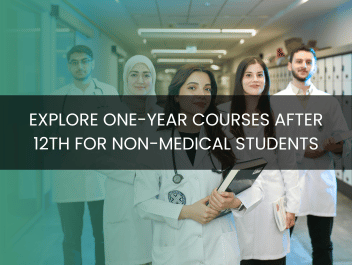









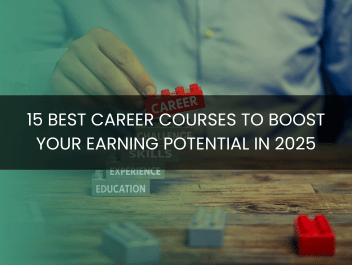

















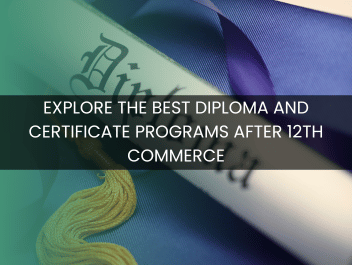

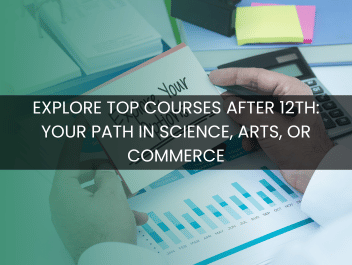















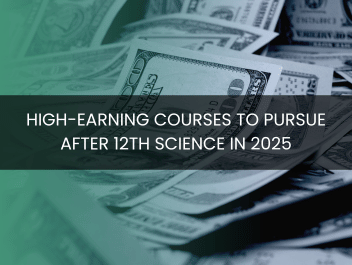


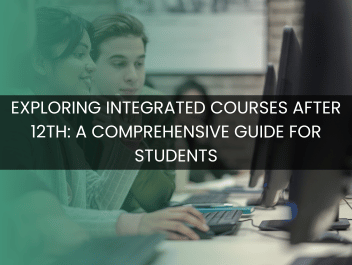
















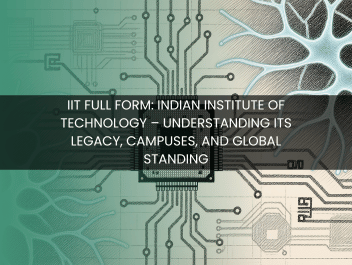








_Thumbnail_.png )
_Thumbnail_.png )











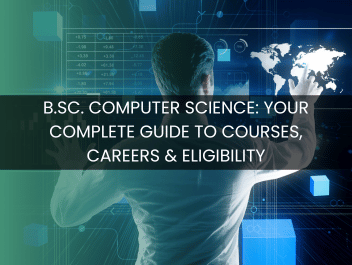


_All_You_Need_to_Know_Thumbnail_.png )






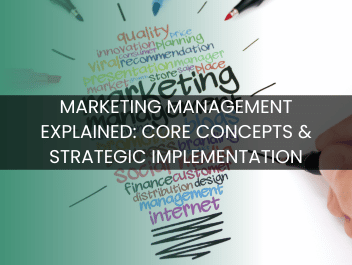
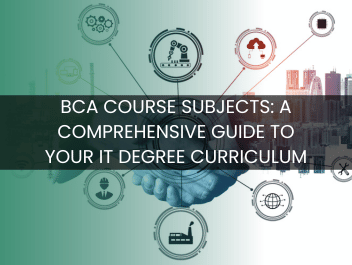














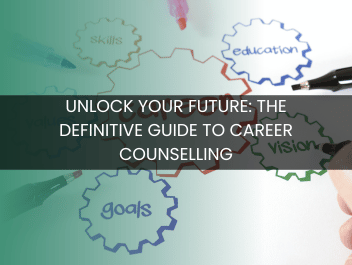

_Thumbnail_.png )
